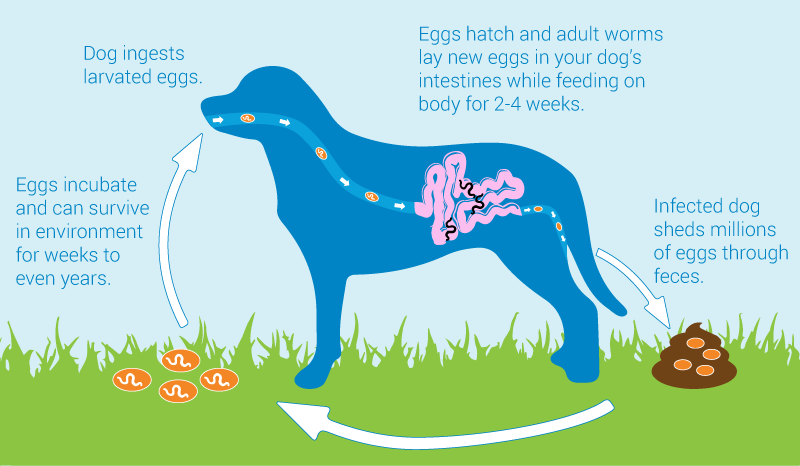What is a fecal test?
A fecal test is a two step test done by looking at your pet’s feces under a microscope. First, the examiner looks to see if there are any parasites or parasite eggs present in the sample. Then, the examiner runs a ELISA test which looks for Giardia; it can be difficult to see under the microscope. Thus, this exam can help your veterinarian to identify and treat infections, whether symptoms are present or not.
What can a fecal test detect?
A fecal test can detect the presence of intestinal parasites and worms (including their eggs) such as giardia, coccidia, hookworm, roundworm, and whipworm. Intestinal parasites and worms can wreck havoc on different organs, making your pet uncomfortable and possibly causing multiple symptoms.
What can be done to reduce my pet’s chance of infection?
First, you can see your veterinarian annually and request a fecal test at the time of annual exam. Second, you can remove your pet’s feces from your yard as often as possible. Third, you can wipe down your pet’s paws after a walk. Fourth, your pet can receive routine deworming either in office or through monthly parasite preventatives. Lastly, you can avoid areas that have been soiled with animal stool. In addition, it is possible for dogs to pass on the infection to a human by licking their owners on the mouth or through home contamination.
What harm can parasites cause?
To pets, they can cause allergic reactions, blood loss due to anemia, damage to internal organs, nutrient loss and release of toxins. In the early stages of infection, minimal to no reactions are possible. These can lead to many symptoms such as diarrhea, vomiting, digestive problems, and lethargy. In humans, they can cause digestive problems, liver and lung damage, partial or total blindness, and skin infection.
To learn more about how prevalent each parasite is in your area, head over to Pets and Parasites to view the different positivity rates across the US.



